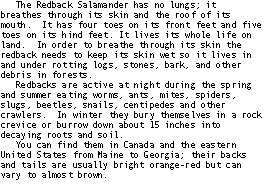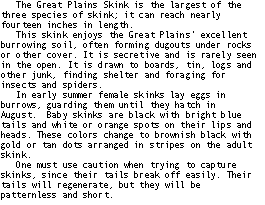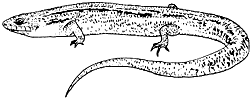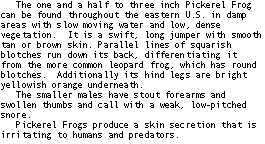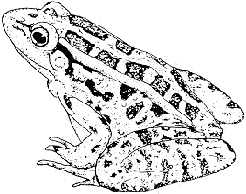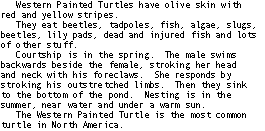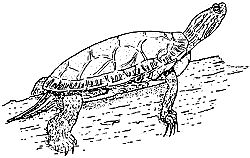1913: The first crossword puzzle appeared in the New York World
1914: The Cape Cod Canal was opened, connecting Massachusetts Bay with Buzzards Bay
1915: The British steamship Lusitania was torpedoed by a German submarine and sank off the coast of Ireland
1916: Albert Einstein completed his mathematical formulation of a general theory of relativity, which includes gravity
1917: World-wide influenza pandemic; by 1920, nearly 20 million were dead. In the U.S. alone, 500,000 perished
1918: Armistice was declared, ending the Great War
1919: A 2.3 million gallon tank of molasses in Boston's North End ruptured and collapsed, sending a 30 foot wave into the streets
1920: A 19th Amendment to the United States Constitution allowed women to vote
1921: Vitamin D and Vitamin E were discovered
1922: British Egyptologists George Carnarvon and Howard Carter unearthed King Tutankhamen's tomb in the Valley of the Kings, the only tomb that remained unlooted through the centuries
1923: DuPont began manufacture of cellophane and cellulose film
1924: George Gershwin debuted his Rhapsody in Blue
1925: Short hair and short skirts were all the rage, and everyone danced the Charleston
1926: Auto antifreeze first allowed people to use cars year-round
1927: Charles Lindbergh completed the first transatlantic airplane flight in the Spirit of St. Louis, traveling from Long Island, N.Y. to Paris, France in 33 1/2 hours
1928: Manhattan's first underwater link with New Jersey, the Holland Tunnel, was completed
1929: The New York Stock Exchange's value dropped $26,000,000, beginning the Great Depression
1930: Pluto, the ninth planet, was discovered by astronomers
1931: General Motors' Frigidaire replaced ammonia with Freon 12 refrigerant gas, making refrigerators safe for households
1932: Edwin Herbert Land, a 23-year-old Harvard college dropout, invented Polaroid film
1933: The New Deal's Civilian Conservation Corp put 2.5 million young men to work on conservation and reforestation projects, and the Tennessee Valley Authority brought hydroelectric power to the rural South.
1934: The Dust Bowl hit the United States, blowing 300 million tons of topsoil into the Atlantic Ocean, which devastated farmland in Kansas, Texas, Colorado and Oklahoma
1935: Amelia Earhart completed the first solo flight from Hawaii to California -- 2,408 miles.
1936: The Hoover Dam, on the Colorado River at the Arizona/Nevada border, was completed
1937: And to Think That I Saw It On Mulberry Street, Dr. Seuss's first book, was published
1938: Radio broadcast show "War of the Worlds" sent Americans into a panic, thinking that Martians were invading the Earth. Meanwhile, Hitler annexed Austria
1939: Igor Sikorsky developed the first successful helicopter
1940: Massive German air raids battered London, Southampton, Bristol, Cardiff, Liverpool and Manchester
1941: American warships docked in Pearl Harbor, Hawaii, were bombed by the Japanese Air Force
1942: An atom was split for the first time, by Enrico Fermi
1943: Penicillin went into common use for chronic diseases and streptomycin was invented
1944: Tennessee Williams published "The Glass Menagerie"
1945: Heads of state Franklin Roosevelt, Benito Mussolini and Adolf Hitler died, as did more than 210,000 Japanese in Hiroshima and Nagasaki
1946: With 17,468 vacuum tubes, the ENIAC computer could perform 4,500 additions in one second
1947: Major League Baseball first admitted a black player, Jackie Robinson
1948: Polariod invented the push-button, pull-tab, wait-a-minute instant snapshot
1949: The German Federal Republic was established
1950: Saturday morning children's programming began
1951: In an effort to introduce rhythm and blues to a broader white audience that was hesitant to embrace "black music," disc jockey Alan Freed coined the term rock 'n' roll
1952: The Schwinn bicycle was the envy of every American child
1953: Alleged Communist Charlie Chaplin left the United States with a Justice Department warning that any attempt to reenter the country would be challenged
1954: Dr. Jonas Salk's polio vaccine was first administered to children
1955: Gunsmoke debuted on CBS, and would go on to be television's longest-running western
1956: The DNA molecule was first photographed
1957: Russia launched Sputnik I, first earth-orbiting satellite�the space age began
1958: The Army's Jupiter-C rocket launched the first American satellite, Explorer I, into orbit while American Express launched the first credit card, bringing modern convenience to debt accumulation
1959: Alaska and Hawaii became the 49th and 50th of America's United States
1960: The Birth Control Pill was approved for market and John F. Kennedy won the presidency. 90% of U.S. homes had a television set
1961: Kennedy asked Americans to refrain from asking what their country could do for them, while Alan Sheperd rocketed 116 miles into space
1962: Kennedy maintained homeland security with the threat of a Cuban blockade. Eleanor Roosevelt and Marilyn Monroe died
1963: King's "I Have a Dream" speech clarified the meaning of civil rights. President Kennedy was assassinated
1964: Surgeon General Luther Terry affirmed that cigarette smoking causes cancer
1965: 190,000 soldiers were sent to Vietnam
1966: The first Star Trek episode, "The Man Trap," was broadcast. In it, a creature sucked salt from human bodies
1967: Mohammed Ali was stripped of his title for resisting the draft
1968: Martin Luther King, Jr. and Robert F. Kennedy were assassinated; America's largest oil reserve was discovered in Alaska
1969: Senator Edward Kennedy left the scene of Mary Jo Kopechne's death in Chappaquiddick, Neil Armstrong and Edwin Aldrin left Earth to walk on the moon
1970: Monday Night Football debuted on ABC, with Howard Cosell, Frank Gifford, and Don Meredith giving play-by-play
1971: A 26th Amendment to the United States Constitution allowed 18-, 19-, and 20-year-olds to vote
1972: Nixon ordered a "Christmas Bombing" of North Vietnam; the U.S. Supreme court ruled that capital punishment is unconstitutional
1973: Skylab, the first American space station, was launched
1974: Encouraged by Chairman Mao Zedong, the Cultural Revolution began in China
1975: ABC, CBS and NBC agreed to create a "family hour," an early evening time slot free of violence and sex. Nobody wanted to go in the water after "Jaws"
1976: The Supreme Court ruled that the death penalty is not inherently cruel or unusual and is a constitutionally acceptable form of punishment
1977: The first space shuttle, Enterprise (its name was petitioned by Star Trek fans) made its first test glide from the back of a 747
1978: Dallas and sneakers were popular. A blizzard dumped 23 inches of snow on Boston in one day
1979: Iranian militants seized the American embassy in Teheran and took hostages; at home, a nuclear power plant accident at Three Mile Island released radiation
1980: Ronald Reagan was elected president in a Republican sweep
1981: AIDS was first identified, IBM's personal computer and Nutrasweet entered the market
1982: MRI (magnetic resonance imaging) diagnostic machines were introduced, in Britain
1983: U.S. admitted shielding former Nazi Gestapo chief Klaus Barbie, the "butcher of Lyon," who was wanted in France for war crimes
1984: The Supreme Court ruled that taping television shows at home on VCRs does not violate copyright law
1985: With the availability of relatively inexpensive laser printers and computers, tools for desktop publishing began to be commonly used
1986: The Television Bureau of Advertising announced that the average American household watched television for more than seven hours a day
1987: thirtysomething debuted on ABC and, departing from typical dramas, featured analytical, self-absorbed baby-boomer characters; Iraqi president Hussein apologized for a missile attack that killed 37 on the U.S. frigate Stark in the Persian Gulf
1988: 98% of U.S. households had at least one television
1989: Ruptured tanker Exxon Valdez lost 11 million gallons of oil into Prince William Sound; America's beloved comedienne Lucille Ball died at age 87
1990: The Hubble Space Telescope was launched
1991: Soviet Union broke up after President Gorbachev's resignation
1992: Johnny Carson hosted The Tonight Show for the last time. He had ruled late-night television for 20 years
1993: The first human clonings took place. Cells taken from defective, to-be-discarded human embryos were grown in vitro up to the 32-cell stage and then destroyed
1994: Thousands died in a Rwanda massacre; South Africa held its first interracial national election -- Nelson Mandela was elected President
1995: France exploded a nuclear device in the Pacific; wide protests ensued
1996: Scientists analyzing a Martian meteorite claimed that it may provide evidence for the existence of ancient life on Mars
1997: Hong Kong returned to Chinese rule
1998: Europeans agreed on single currency, the euro; the crew of the space shuttle Endeavour connected the first two modules of the international space station
1999: Doctors in Louisville, Ky. performed the first human hand transplant in the U.S., replacing the severed left hand of a New Jersey man with one from a recently dead donor
2000: Charles Schulz died from colon cancer. In a nearly 50-year career, Schulz drew more than 18,000 "Peanuts" comic strips, expressing a droll philosophy through precocious children. "Peanuts" was the most widely read comic strip in the world, published in 21 languages in 75 countries
2001: An American spy plane and a Chinese jet collided, and Sino-American relations deteriorated during a standoff. The 24-member crew of the U.S. plane was detained for 11 days and released after the U.S. issued a formal statement of regret
2002: President Bush's first State of the Union address vowed to expand the fight on terrorism and labeled Iran, Iraq, and North Korea "an axis of evil"
2003: Against Florida's Marlins, the Boston Red Sox tried and failed to win the World Series, 85 years having passed since their last title
0 Comments
